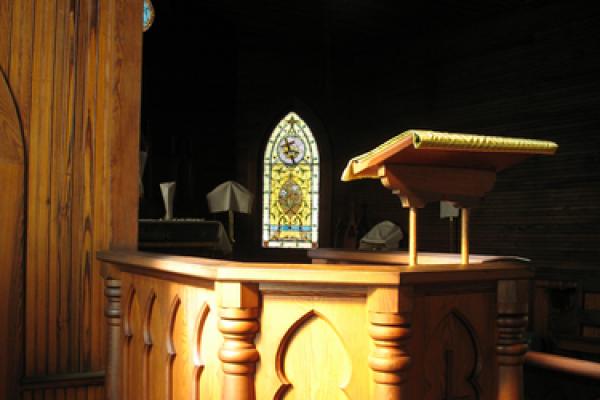In an attempt to make sense of the 2012 election and the unfolding David Petraeus sex scandal, I consulted the Bible and the Sayings of the Fathers, a collection of sage rabbinic teachings written between 200 B.C. and 200 A.D.
Turns out the ancient perceptions about politics and ethics are as insightful today as when they were first uttered.
I am appalled when clergy of any religion endorse candidates by name in the run-up to an election. Priests, ministers, rabbis and imams, of course, have every right to vote for any particular person they choose, thanks to the secret ballot. The clergy also have the right — indeed, the obligation — to discuss and debate the critical issues facing society. But religious leaders err and undermine their own authority when they publicly call for the election or defeat of a specific individual.
Last month “Pulpit Freedom Sunday” was sponsored by a group called the Alliance Defending Freedom. Nearly 1,500 Christian ministers openly backed various candidates as they tested the U.S. tax code, which forbids non-profit organizations (including houses of worship) from speaking out for or against political candidates. Such actions endanger their tax-exempt status, but the ADF sees that restriction as an incursion on freedom of religion and speech.
The proper role of clergy is not to become a partisan supporter of the ruling powers, but rather to emulate the biblical prophet Nathan by remaining literally and figuratively outside the royal palace and acting instead as the community’s moral conscience.
Nathan personally confronted and criticized his ruler, King David, when the lustful monarch ordered one of his generals into mortal combat and certain death to clear the path for him to marry the general's wife, Bathsheba.
The ancient rabbis used vivid language to warn about the need to be independent of any political party or candidate. “Be careful in your relations with the government; for they draw no person close to themselves except for their own special interests," they cautioned. "They appear as friends when it is to their advantage, but they do not stand by people during their time of stress.”
The wise rabbis who composed the Sayings of the Fathers would not have been surprised by the scandal that has enveloped Petraeus, his biographer-mistress and others because they were hardly naive and were keenly aware of the sexual behavior and urges of human beings. It is no accident that one of the Ten Commandments declares: “You shall not commit adultery.”
But more than adultery is involved in the current scandal. Hopefully, Americans will now think twice about the dangerous near-idolatry of our top military leaders. Millions of people swoon at the sight of officers with four stars on their shoulders and rows of colorful ribbons on their uniforms. We need to judge our military by the same moral and ethical standards as we judge all other members of our national community.
Full disclosure: my father was a lieutenant colonel in the U.S. Army, and he and my mother are buried at Arlington National Cemetery. I was raised at Fort Belvoir, Va. My brother was also an Army officer and I served as an Air Force chaplain in Asia. While respecting the military, I am not willing to give our highest-ranking officers a free pass when it comes to their public and private behavior.
I do, however, have a sense of compassion for the families affected by the Petraeus affair. Their healing process requires enormous empathy from friends and the general public.
Because of his actions, Petraeus lost his job as the head of the CIA, but he has lost something even more important. The rabbis taught that there are three crowns in a person’s life: the crown of the Torah (sincere religious commitment), the crown of the priesthood and the crown of kingship (the respect one gains by holding a high position in society). "But the crown of a good name," the rabbis said, "surpasses them all."
When the final curtain comes down on our lives, our wealth, learning, status, and even piety all melt away. The rabbis were right: the greatest gift we can leave behind is a “good name.”
Rabbi A. James Rudin, the American Jewish Committee's senior interreligious adviser, is the author of the recently published Cushing, Spellman, O'Connor: The Surprising Story of How Three American Cardinals Transformed Catholic-Jewish Relations. Via RNS.
Traditional church pulpit, © Pattie Steib | View Portfolio / Shutterstock.com
Got something to say about what you're reading? We value your feedback!
